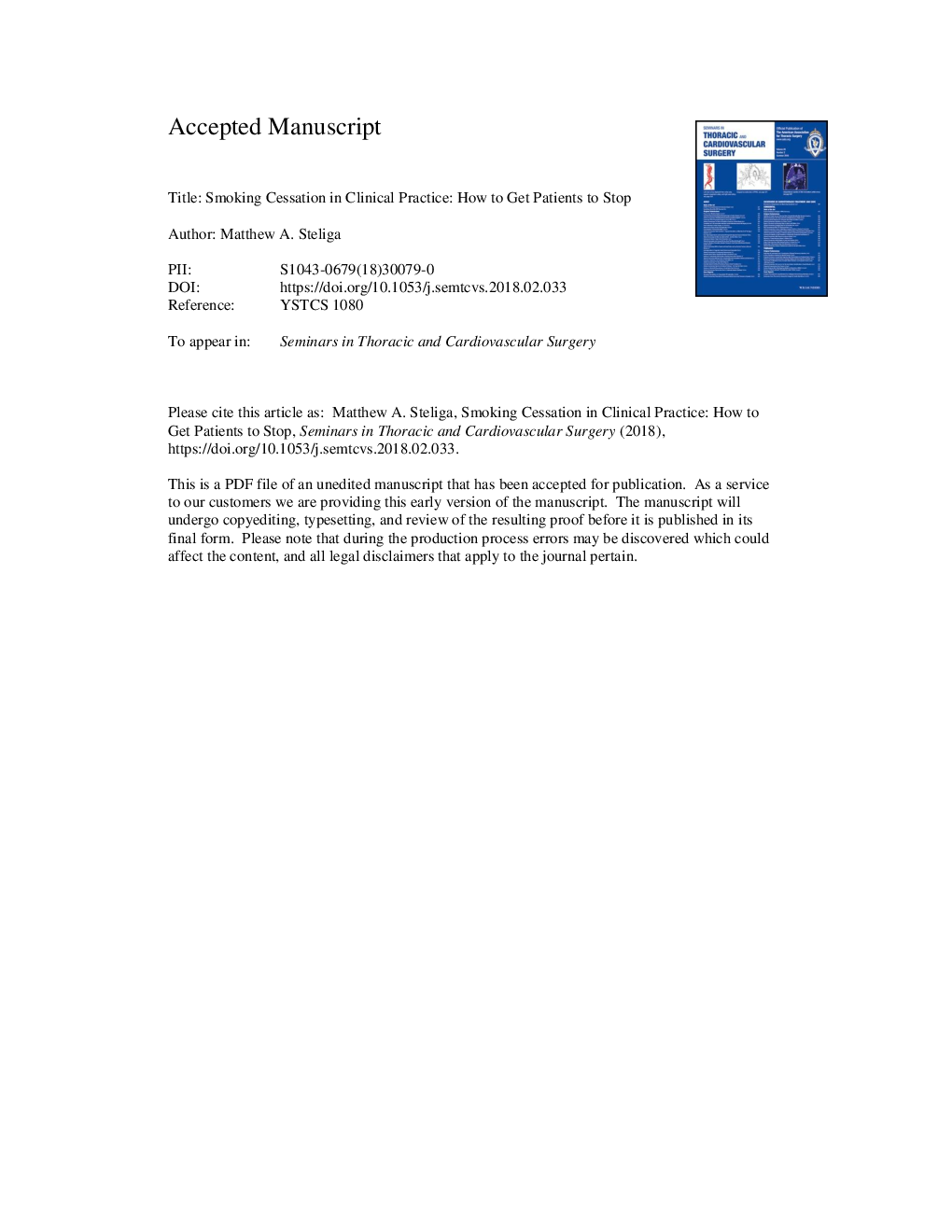| Article ID | Journal | Published Year | Pages | File Type |
|---|---|---|---|---|
| 8679090 | Seminars in Thoracic and Cardiovascular Surgery | 2018 | 20 Pages |
Abstract
Tobacco use is an etiologic agent for many diseases treated by cardiac, vascular, and thoracic surgeons and contributes to increased perioperative complications and long-term risk. Smoking cessation may be challenging for patients and can be frustrating for clinicians. Lack of familiarity and pessimistic views toward cessation methods lead to underuse by physicians. Evidence-supported measures that increase chances of cessation include direct physician advice, approved pharmacotherapy, structured counseling, and a follow-up plan. Approved pharmacotherapy consists of varenicline, bupropion, or nicotine replacement therapy in the form of long-acting patches and short-acting forms of nicotine such as gum, lozenges, prescription nasal spray, or prescription inhaler. Direct physician advice is critical and strengthened when combined with more in-depth counseling from a specialist who may have more expertise and time. Integrating assessment and referral to counseling services into a clinical workflow can deliver resources in an efficient manner with the goal of providing the best available resources to all patients.
Related Topics
Health Sciences
Medicine and Dentistry
Cardiology and Cardiovascular Medicine
Authors
Matthew A. MD,
